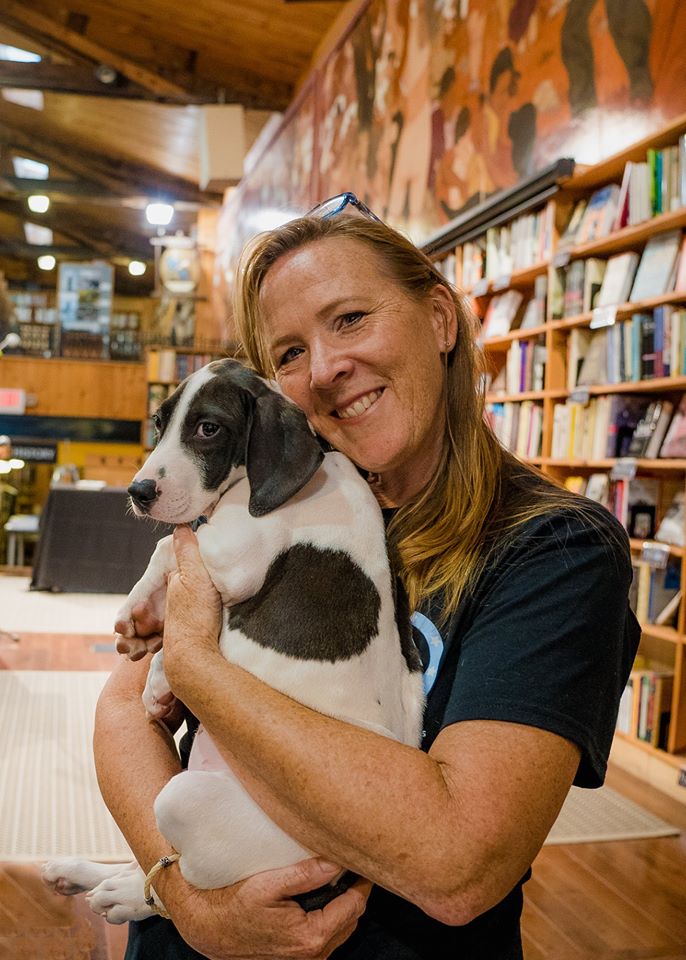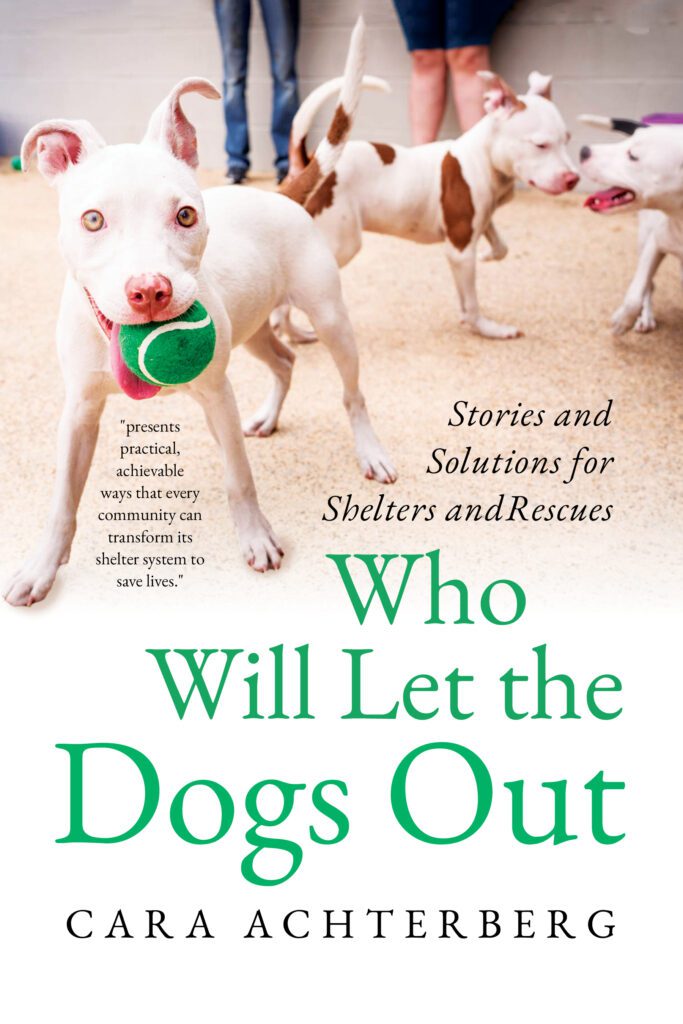Every shelter tour is a little bit different. I am always inspired by the people we meet and while we can’t pull dogs, I do carry many of them home in my heart. I’m still thinking about the Rottie mix at Tift County Shelter who leaned into his kennel fence begging for my touch, and the super-smart border collie mix we met at Lucky Dog Rescue Ranch, who is my dream dog (although my current pack does not have any openings).


Our first stop was in North Carolina, where we waded into an ongoing struggle between county administration, staff, and advocates. While all three have the same goal, finding their way onto the same page is proving difficult. It’s a familiar story.
The staff (all mostly brand new to the shelter) are still getting their footing and trying to establish protocols, policies, and programs under an interim director. The administration (also interim) is sifting through competing opinions, a dark history, and the challenge of writing a new story, while keeping everyone’s (including the animals’) best interests at heart.
And the advocates (mostly former volunteers who were booted out during the pandemic and not been able to get back in), are skeptical and frustrated, having been burned and their hearts broken too many times.





Moving forward is going to require trust and transparency – things not easy to give (or receive) amidst such a tumultuous situation. But here’s the thing—and this is true of much more than animal sheltering and rescue—in order to move forward, you have to let go of the anchor of the past. All the parties involved need to believe that everyone has the same goal – creating a shelter that serves its community and offers the best care and outcomes for its animals.
If they stay mired in the old story, they will never be able to write a new one. If the advocates are certain that the new staff and administration can’t succeed, they can’t be part of the solution. And if the new staff/administration will not trust their community to volunteer, foster, and be a part of the solution, then they will continue to struggle.
As I have said to my kids, someone has to take the high road, or we won’t get anywhere. It will be interesting to watch what unfolds.
Most of this tour was spent in Georgia. We made five stops at five very different organizations.
At Dublin-Laurens Humane Society, they take their commitment to ‘no-kill’ very seriously and hold dogs indefinitely because they don’t have enough adopters or rescue help, and will not euthanize for space or length of stay. Some dogs remain there for years. The staff is devoted, and the volunteers are passionate and committed. There is a municipal shelter in town, but no relationship exists between the two. This is a familiar model we’ve seen all over, but I continue to believe there can be a better way.


Diamonds in the Ruff is a small rescue organization that focuses on puppies and easily adoptable dogs (no pit bulls). They are dependent on rescue (rarely adopting locally) and only accept what they believe they can move quickly. They keep their dogs in a boarding facility while they work to move them out through rescue.


The municipal shelter in that county, Soperton-Treutlin Animal Shelter, is a barebones operation with all of the animals living outside in chainlink kennels with just a dog house or doorless plastic airline crate for shelter. The staff takes the best care they can, but are limited by resources. They’d love to utilize foster homes, but cannot find any community members who are willing to foster for them. They are open-intake and grateful that Diamonds in the Ruff is able to move some of their dogs.



The Tift County Animal Shelter is an open-intake shelter that handles approximately 3,000 animals each year. The animals receive first-class care, including heartworm preventative (and treatment if necessary). The director is a former volunteer and also one of the founders of Tift Animal Rescue. Most of the shelter animals leave via the rescue, but they are also trying to address the problem by building spay/neuter services on site.


Lucky Dog Rescue Ranch is a tiny rescue operation (300 animals a year) in a county with no Animal Services. Julie, the director who houses most of the dogs on her property (plus three foster homes), does not do adoptions, relying on rescue and transports. With no county support and a full-time job of her own, she spends every waking hour caring for and networking dogs, including many medical case dogs who would not survive without her.


I’ll tell you lots more about these visits in coming posts, including ways you can help.
The main reason we went to Georgia was to host Stronger Together South Georgia. It was an incredible day sharing ideas, networking, and learning together. Instead of dwelling on all that is wrong and hard and frustrating in shelter and rescue in South Georgia, we focused on all we can do about it. This was our second ST event and we learned a lot and are already talking about the next events and how we can make them even better.



Many of our sessions were live-streamed and are now available on our YouTube channel.
It was a five-night, six-day blur that I’m still processing, but it was also confirmation that the work we are doing matters. It was a privilege to bring not just donations, but ideas and inspiration to the organizations we visited. For some, we were the first outside organization to show up, care, and offer help.
I’m excited about the work we do and the impact we have. The stats for this trip:
Miles driven: 1630
Organizations visited: Six shelters and rescues, plus 24 other organizations who registered for Stronger Together.
Donations delivered: Mutt Nation, Max & Neo, and individual donors filled our truck with: high-quality food and treats, dewormers, flea/tick treatment and preventatives, toys, chew bones, pill-pockets/squeeze cheese, lick-boards, puppy/kitten formula, high-calorie supplements, collars, leashes, copies of Who Will Let the Dogs Out: Stories & Solutions for Shelters and Rescues, and more.
Dogs helped: 4625
If you’d like to support the work we do and help us make future shelter tours, please consider donating to Who Will Let the Dogs Out.

Cara
If you want to learn more, be sure to subscribe to our email list to get the latest stories and solutions delivered to your inbox. And help us spread the word by sharing this post with others. Visit our website to learn more.
You can also help raise awareness by following/commenting/sharing our content on Facebook, Instagram, YouTube, and Tik Tok.

Who Will Let the Dogs Out: Stories and Solutions for Shelters and Rescues was published in January of 2025. It is filled with stories and ideas to help everyone be part of the solution. You can buy a hardback or paperback copy for yourself and/or buy a copy for a shelter or rescue through our website. It is also available on Amazon in paperback and ebook. We are looking for opportunities to share a presentation of the ideas in the book and facilitate conversations about how we can work together to find solutions for our shelters. If you have a dog-hearted group that would like to connect, contact Cara@wwldo.org.
To see our Emmy-nominated, award-winning short documentary, Amber’s Halfway Home, click here.
Did you know we have a podcast? I’m working at getting regular episodes up, including the audio version of the new book (narrated with additional info), and interviews with shelter heroes we meet. Find the podcast on Spotify and other podcast services.
For more information on any of our projects, to talk about rescue in your neck of the woods, or partner with us, please email cara@WWLDO.org.
And for links to everything WWLDO, including volunteer application, wishlists, and donation options, check out our Linktree.



Leave a Comment
Sign up for our newsletter
Sign up to have our latest news, grant updates, shelter visits, and more delivered to your inbox.
Share this:
Like this: